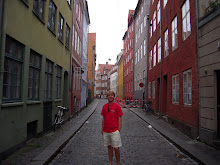
While others—the CIA, FBI, political pundits—obsess over his past and, by the end of the film, try to determine his future—the Presidency (!)—Chance simply lives in the present. He interacts with his immediate surroundings in a simple, factual way, assessing reality as he sees it. He tells the President that he’s “much smaller on television”. When the doctor sticks Chance with a needle, saying it won’t hurt, Chance simple replies: “it did hurt.” Chance’s simple viewpoint helps to quell Ben, and make it easier to accept death. Chance doesn’t think of death and seems to be immune to those sort of meaning-of-life internal monologues. Because, as Ben relates, the truth of death is that “no one knows what death is”. Chance doesn’t worry about an ultimate demise; actually, he doesn’t worry about anything at all. Martin Heidegger, in Being and Time says that one of the primary qualities of Daesin that makes it stand out is: “in its very Being, that Being is an issue for it.” Worrying about and questioning existence is essential to existence itself. Chance has no issues with his own existence, and therefore does not fundamentally have Dasein. This lack of worry, this weightlessness, is what calms Ben.

And Chance’s weightlessness is physically evidenced in the film’s final frame where he walks on water. On a repeated watching, this comes as no surprise, but at first sight, this visual has alarming effect, immediately drawing comparisons between Chance and Christ. Though the film clearly makes some biblical allegories. We’ve got the garden, we’ve got Eve (furthermore, we have Eve Rand or, “ever and”, a phrase just missing the second “ever”) and we’ve got the “old man” who may or may not be our assumed Christ’s father. Though these religious references operate to reveal how the political world of American society is its own sort of religion—visually represented by the Masonic pyramid in the frame as the pallbearers carry Ben’s coffin and discuss the Presidency—I feel reading too far into these religious connotations detracts from the main message that the film makes about existence. Chance, devoid of worry, reveals to us how, in the modern world, an individual’s existence has been conditioned to a set of rules, requirements and meanings that he may or may not agree with or believe in but must follow. And, since Chance is able to essentially rise to the top of the larger society deciding these shared meanings, this world is meaningless when faced with the unavoidable fate of death.

No comments:
Post a Comment